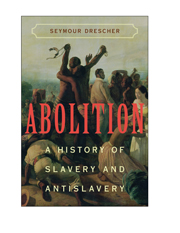Book contents
- Frontmatter
- Contents
- Preface
- PART ONE EXTENSION
- PART TWO CRISIS
- PART THREE CONTRACTION
- 9 British Emancipation
- 10 From Colonial Emancipation to Global Abolition
- 11 The End of Slavery in Anglo-America
- 12 Abolishing New World Slavery – Latin America
- 13 Emancipation in the Old World, 1880s–1920s
- PART FOUR REVERSION
- Index
- References
10 - From Colonial Emancipation to Global Abolition
Published online by Cambridge University Press: 04 August 2010
- Frontmatter
- Contents
- Preface
- PART ONE EXTENSION
- PART TWO CRISIS
- PART THREE CONTRACTION
- 9 British Emancipation
- 10 From Colonial Emancipation to Global Abolition
- 11 The End of Slavery in Anglo-America
- 12 Abolishing New World Slavery – Latin America
- 13 Emancipation in the Old World, 1880s–1920s
- PART FOUR REVERSION
- Index
- References
Summary
In many respects, British anti-slavery reached its zenith in the decades of the 1830s and 1840s. British abolitionists mobilized five times to petition Parliament or to elect representatives favorable to their cause. The antislavery movement continued to set records for the numbers of petitions and addresses sent to London. In Parliament, a radical abolitionist could, with the confidence of an Inca ruler, threaten to cover the floor of the House of Commons with petitions until it responded favorably to public opinion. Antislavery ambitions increased in proportion to the magnitude of its seemingly unending power. With the end of slave apprenticeship in the summer of 1838, some abolitionists formed a “society to aid in the universal abolition of slavery.” The following year this vision was institutionalized in the British and Foreign Anti-slavery Society (BFASS). It was to prove the most enduring of all antislavery organizations and, under a different name, remains the most durable human rights organization in human history. The BFASS at once became the clearing house for information about slavery and antislavery throughout the world.
Exhilarated by the British victory over slavery, an American abolitionist suggested a London gathering of antislavery philanthropists from all civilized nations. In June 1840, the first World Antislavery Convention was convened with Thomas Clarkson delivering the opening address and five thousand spectators in attendance. The British delegation, led by London abolitionists and 250 representatives from provincial locals, was supplemented with representatives of missions from Canada to Mauritius in the Indian Ocean.
- Type
- Chapter
- Information
- AbolitionA History of Slavery and Antislavery, pp. 267 - 293Publisher: Cambridge University PressPrint publication year: 2009
References
- 1
- Cited by



